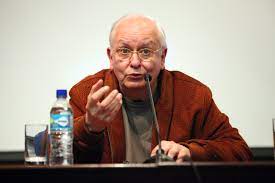Laclau, Ernesto

Bio: (1935-2014) Argentinian-British sociologist. After studying history in Buenos Aires, Ernesto Laclau received his doctorate from the University of Essex. He was a professor at the same university throughout his career. He belongs to the post-Marxist theoretical approach. In his book Politics and Ideology in Marxist Theory (1977), he developed the Marxist theory of ideology and politics, and in shaping his theory he relied mostly on the theories of Gramsci and Althusser. In his opinion, classical Marxism fell into the reductionism of economic and class determinism. Laclau believes that there is relative autonomy of the capitalist state in some special historical circumstances. In addition, some ideologies are not based on class identity, and examples are populist ideologies, such as Nazism and fascism, which are accepted by members of completely different classes.
In his book Hegemony and Socialist Strategy (1985), written with his partner Chantal Mouffe, the authors argue that no "fundamental social class" can embody the meaning of the ideological concepts of a "people" or a "nation." Starting from the poststructuralist language theory of Derrida and Foucault, they believe that all ideological elements are connected and function as floating signifiers that can be transformed within discourse through hegemonic practices. The authors give the example of Thatcherism, as an ideology within which signifiers such as "free market", "strong state" and "individual freedom" merged into a single ideology that created a new identity for survivors of Britain's crisis in the 1970s. Political forces that create hegemony also create borders in the discourse between us (insiders) and them (outsiders), thus creating antagonism between the two groups. Antagonism reaches its extremes when outsiders are portrayed as a group that blocks or prevents the realization of an insider's identity. In later books, Laclau uses the deconstructivist approach of Derrida and Jacques Lacan's psychoanalysis to explore the symbolic order of hegemony and the antagonism that hegemony creates.
Fields of research
Capitalism Classes Crisis Identity Ideology Language Psychology Socialism State FascismMain works
Politics and Ideology in Marxist Theory (1977);
Hegemony and Socialist Strategy (1985);
New Reflections on the Revolution of Our Time (1990);
Emancipation(s) (1996);
Contingency, Hegemony, Universality: New Discussions on the Left (2000);
On Populist Reason (2005);
The Rhetorical Foundations of Society (2014).

